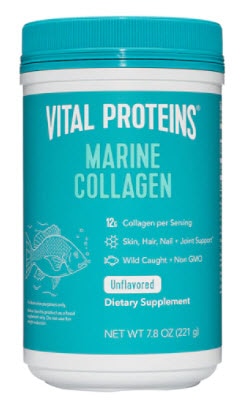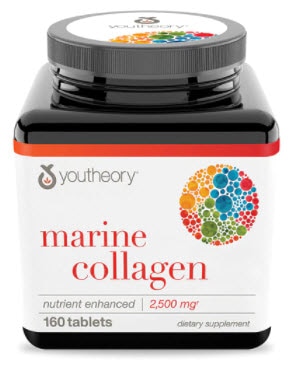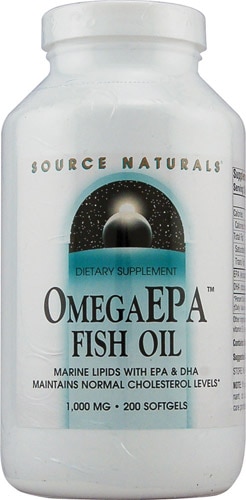You’re undoubtedly familiar with
collagen. It’s a family of proteins found in body parts like blood vessels, bones, cartilage, intestines, ligaments, tendons, hair, skin and nails.
Collagen is “the most abundant protein in the animal kingdom and is fundamental to the strength and structure of the organism,” according to a
study published in 2020 in the Journal of Clinical & Experimental Dermatology Research.

When you shop for collagen-based products, you may discover the collagen came from cows or pigs. However, there’s another animal source of collagen — a source known as marine collagen. What is marine collagen? As the name suggests, marine collagen is derived from fish.
Hey Nutrition, a British health supplement company,
declares that marine collagen “provides a broader range of benefits compared with collagen derived from other animal sources.”
Follow along as we swim through the sea of information about marine collagen.
Where does marine collagen come from?
Marine collagen comes from fish parts that normally are discarded —namely skin, scales and bones. In this sense, rescuing fish parts for production of collagen helps the environment. Wild-caught fish generates a lot of the marine collagen that you’ll come across.
Marine collagen is
hydrolyzed (or converted into peptides), meaning it’s broken down into particles so that it can be more easily absorbed or digested. Hydrolyzed collagen also is known as collagen peptides or collagen hydrolysate.
You can buy marine collagen in the form of powders, liquids, capsules, chews or creams.
Australia’s Body + Soul website
notes that marine collagen is predominantly type I collagen, meaning it “has a greater affinity” with skin than other types of collagen. There are at least 16 types of collagen, although types I, II and III are the most common.
Marine collagen “has a unique amino acid profile compared with collagen produced from land-dwelling animals that has led scientists to believe that it is the most suitable for improving skin health,” Body + Soul says.
What are some marine collagen benefits?
Research suggests marine collagen may:
- Support healthy skin. Marine collagen may boost skin hydration, elasticity and firmness, and minimize visible wrinkles. As we age, we naturally lose collagen, so some people turn to collagen products to ward off the aging of skin.†
- Helps with wounds and minimizing scars.†
- Maintain healthy hair, nails and teeth.†
- Supports healthy bones. Marine collagen may promote absorption of calcium and other minerals that can build stronger bones.†
- Ease joint pain and joint inflammation.†
- Encourage more restful sleep.†
- Fight bacteria.†
- Promote weight loss by curbing hunger.†
The “evolving demand for marine collagen is driven by its ‘premium’ appeal, as well as the rapidly growing trend for more sustainable lifestyles,”
according to Rousselot Health & Nutrition, a producer of marine collagen. “People with specific dietary requirements, like pescatarians or those that don’t eat certain types of meat for religious reasons, are also accelerating growth in this space.”
Rousselot says sustainably sourced marine collagen is rising in popularity, with the number of new products containing collagen sourced from wild-caught ocean fish having climbed 70% from 2018 to 2019.
“Balancing the use of farm-raised and fully traceable wild-caught fish collagen can help brands ensure the sustainability of our oceans and provide premium collagen products to a growing population,” Sara De Pelsmaeker, leader of global business development at Rousselot, says in a news release.
†These statements have not been approved by the Food and Drug Administration. These products are not intended to diagnose, treat, cure or prevent disease.
Featured products:


 When you shop for collagen-based products, you may discover the collagen came from cows or pigs. However, there’s another animal source of collagen — a source known as marine collagen. What is marine collagen? As the name suggests, marine collagen is derived from fish.
Hey Nutrition, a British health supplement company, declares that marine collagen “provides a broader range of benefits compared with collagen derived from other animal sources.”
Follow along as we swim through the sea of information about marine collagen.
When you shop for collagen-based products, you may discover the collagen came from cows or pigs. However, there’s another animal source of collagen — a source known as marine collagen. What is marine collagen? As the name suggests, marine collagen is derived from fish.
Hey Nutrition, a British health supplement company, declares that marine collagen “provides a broader range of benefits compared with collagen derived from other animal sources.”
Follow along as we swim through the sea of information about marine collagen.





